- Hey Dullblog Online Housekeeping Note - May 6, 2022
- Beatles in the 1970s: Melting and Crying - April 13, 2022
- The Beatles, “Let It Be,” and “Get Back”: “Trying to Deceive”? - October 22, 2021

The Boys away from the beach, 1967
NANCY CARR • I love the Beach Boys (not the way I love the Beatles, but still), so why can’t I wholeheartedly love Smile? I ask this question sincerely. I think Brian Wilson is a songwriter, singer, and bassist worthy of great praise. I understand why Paul McCartney was so blown away by Pet Sounds that he dreamed up the idea for Sgt. Pepper’s Lonely Hearts Club Band. I’m glad Smile has finally seen the official light of day, and I’m intrigued by the what-if game of wondering about what might have happened if Smile had been released in 1967, as originally intended. But when it comes to the reality of listening to Smile, I’m underwhelmed—both by Brian Wilson’s 2004 album and the 2011 reconstruction The Smile Sessions.
Starotin on Smile Vs. Sgt. Pepper
Critics I hold in high regard, including my perennial favorite, George Starostin, love The Smile Sessions. Starostin even says, in his review, that it’s a better album than Sgt. Pepper:
“In the long run, it is a more rewarding listening experience than Sgt. Pepper: the payoff is smaller at first, with all the different links and overdubs and stops and starts and reprises and modulations and special effects dazzling and confusing the listener, but larger on subsequent listens, when all the flourishes start sinking in and you start to realize how well they all belong together. It does not have its own “Day In The Life”– a sort of ultimate, mind-blowing, cathartic peak with a cleverly engineered mix of comic and tragic overtones that forces you to realize how small you are in relation to the universe– although the magnificent “Surf’s Up” comes close, its solemnly mannered baroque flow, ungrammatical lyrics (I still think that Van Dyke Parks was one of the weakest links in the chain), and intentional coldness still stir up a very different kind of emotions. But apart from that, it still reflects a grand vision, dressed up in some of the most inventive clothes ever designed by a pop musician.”
Me, I’m not getting the “grand vision” aspect, though some of Smile’s parts are indisputably great. “Surf’s Up,” in particular, is an amazingly lovely, moving song that could only be by the Beach Boys. It’s fully as great as “Good Vibrations” or “God Only Knows.” But for me, the flourishes Starostin describes in Smile don’t sink in. No matter how many times I listen to them, songs like “Vege-Tables” or “Love to Say Dada” leave me cold. When I listen to Smile, I’m conscious of the drawbacks of using the studio as an instrument: there are plenty of interesting soundscapes, but too often the production takes center stage instead of serving the songs. And that’s never how I feel when I listen to Sgt. Pepper. There the songs are never overburdened by the production (thank you, George Martin). The instrumentation and effects enhance, but don’t overwhelm the songs. The spooky bass harmonica on “Being for the Benefit of Mr. Kite!” perfectly establishes the “carnival” atmosphere Lennon wanted, just as the violins, cello, sitar, tambura, and tabla on “Within You Without You” bring East and West together literally.
And when it comes to lyrics, I think Starostin is right when he calls Van Dyke Parks “one of the weakest links in the chain” on Smile. I know many hear his lines as poetic, but to me they often sound willfully obscure and pretentious. In my opinion the sounds of Smile—the music and the vocals—are often worthy of better words. And again, that’s not a feeling I get when I listen to “Sgt. Pepper’s.” [Apart from wanting to collar Paul and ask “Fun is the one thing that money can’t buy? Really?”] The lyrics of “Lucy in the Sky with Diamonds,” for example, are poetic without giving off the perfume of affectation. Not a single song on Sgt. Pepper is forgettable or pointless. (I’m happy to go to the mat for “When I’m 64.”) I don’t care how many people leave Sgt. Pepper off their Top-100-Albums lists or how many critics claim that Revolver is light years better. I’ve got no great reverence for Rolling Stone, but one thing I can agree with that magazine about is the greatness of this album. I believe, however, that I must be missing something when I listen to Smile. If Starostin and others whose critical judgment I trust can esteem it so highly, there must be more there than I’m getting. Hey Dullblog readers, what say you about Smile, or about how Smile compares to Sgt. Pepper?
MG here—getting Nancy’s post ready for posting, I thought perhaps the following videos would be useful background:
Brian Wilson’s solo performance of “Surf’s Up” from the World of Pop, 1966
“Beautiful Dreamer: Brian Wilson and the Story of SMiLE”

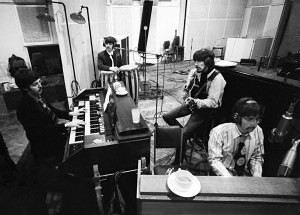
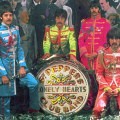
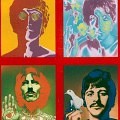

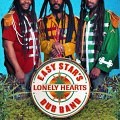

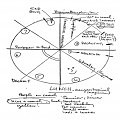

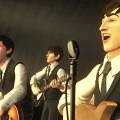
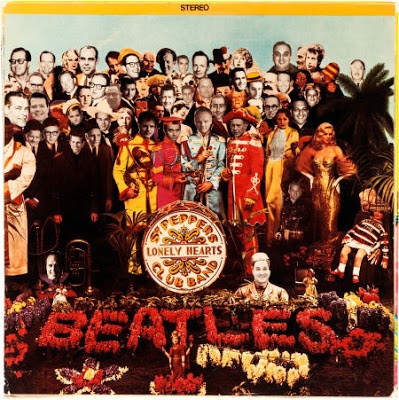
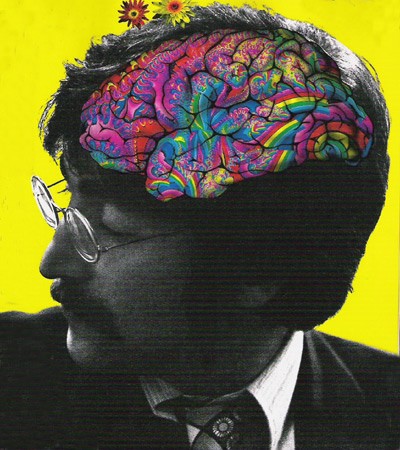
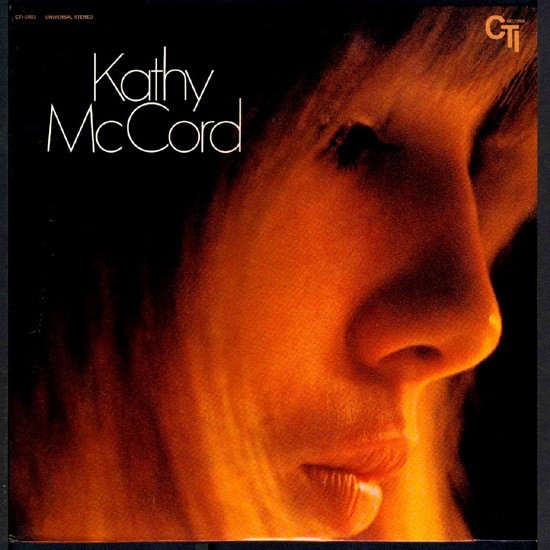

Three quick points about Brian Wilson. I love his work and I’ve watched a lot of documentaries about Smile and Pet Sounds. To a one, the critics praise Wilson’s perfectionism and his ability to order musicians and vocalists around to get the sound he wanted. Sound familiar? McCartney did the same sort of a thing with his band(s) and got nothing but criticized for it, even though people love the results. No one said that life was fair, huh?
Secondly, Smile taught me to appreciate McCartney’s Ram LP. When I listen to it now, especially something like Uncle Albert, I see how Paul is taking bits and pieces of songs and putting them together to make a coherent whole, just as Wilson did with Good Vibrations, etc. Smile has a very positive vibe. I like that. So does Ram. It would be unfair of me to dig the positivity of one and to discount the same qualities of the other.
Final point. When Wilson is positive and friendly, we like him and sympathize with him. When McCartney acts in a similar fashion he gets criticized for somehow or another being “fake.” Is there something so pre-ironic about Wilson and his work that he gets a free pass while McCartney or rather the Beatles were a more snarky, subversive, and post-ironic band that any attempts on Paul’s part to be nice and charming are seen as false somehow?
Hi Barb,
I feel your point …keep in mind that all similarities, verging rivers and colliding mountains aside, they are still 2 very different artists, more so very different people -and therefor 2 entirely different characters brought forth from their insides.
Brian, working through the inner demons of recurring depression and his father’s psychic abuse has a quite different feeling “nice” than does Paul’s “nice”. Paul has his demons, life-tragedies and personal baggage as well; no question -but, even for such kindred souls, they *are* different and they present very differently
Each is entitled 100% to their joy and whatever moments of “Good Vibrations” they feel and bring out to us – as and when they can …but have you ever seen or heard of Brian Wilson “playing” at nice? or “acting” nice – with barely submerged hostility underneath? Don’t get me wrong, I dearly love Paul, but Brian’s “nice” always tumbles out pure, 100% heartfelt and honest – no ulterior agendas ever attached. Unlike Brian, Paul’s defenses are not to shut down and go away when overwhelmed with pressure or pain, but to attack, often in a passive-agressive manner.
Occasionally Paul’s honest joy is right there for us to see -but not often. Far more than Brian, he has had to strive continually for any tiny bit of private life or free movement. Being more guarded, his “nice” just doesn’t feel as sincere as that from one of the most unguarded children of God to have survived the 1960’s: one Brian Wilson.
btw, as to “nice” or ummm, “easy” MUSIC …well Paul again is that much different than Brian when he goes there. Perhaps even more so. (And Brian has suffered his share of pummeling from the critics when his pen fails to cut deep, only skimming the surface; Paul is not The Lone Ranger on that one.)
Bottom line: Our expectations of the brilliant Beatle and THE brilliant Beach Boy are so different that, at our end, we register our own approval, disapproval, elation or disappointment in each of them differently. Can’t be helped. We’re human. They’re human. All You Need Is Love.
Thank God for Brian and for Smile.
As I just said to Nancy, my thoughts on Smile may be too voluminous to fit into a comment—I may have to post about it myself—but I think it’s much too different from Pepper to be compared profitably to it. The comparison reduces them both. I don’t enjoy Smile any less than Pepper, but since one must meet Smile on its terms—it demands more of you—I listen to it much less.
Smile is the product of one man’s vision, and soars and suffers for it; add my voice to the chorus of those disliking Van Dyke Parks’ lyrics. Wilson’s music is ambitious and timeless, while Parks’ lyrics are ambitious and dated. The self-conscious intellectualism of VDP is sort of like Gertrude Stein writing lyrics to Gershwin. IMHO, Tony Asher was a better fit for Brian’s music because his human-scale subject matter connects the listener to what’s really remarkable about Wilson: his cascades of personal joy and pain. I don’t really think Brian Wilson or Van Dyke Parks have deep insights about the progress of American civilization across the continent. But when they applied the Pet Sounds model—Surf’s Up, Wonderful—it’s excellent stuff.
Pepper has no such glaring flaw at its center, because the bad ideas were winnowed out. (BTW, Nancy, that line in “She’s Leaving Home” sounds like John to me.) The only real concept behind Pepper is the peculiar and utterly unique chemistry between a fully matured, fully equal John and Paul, with George and Ringo adding their bits. (The teams around Pepper and Smile–George Martin or “The Wrecking Crew”–cancel each other out.)
Pepper is like a team-written TV show, thought-out and flawless in that same way, whereas Smile is like a movie by your favorite auteur, full of idiosyncrasies. Pepper sometimes feels a bit bloodless, while Smile feels quirky to the point of annoyance. Pepper was part of The Beatles’ story—the latest chapter in something we’d been reading since 1963, the triumph following the cliffhanger of “we’re not touring anymore.” Pepper was a beginning as Smile was an end—a definitive break from the Beach Boys, practically a Brian Wilson solo album.
Starotin remarks that Smile’s not really a rock album, and I agree; there are almost no guitars on it. The songs on Pepper can exist quite well individually, whereas Smile is a collection of strange creatures too fragile to thrive anywhere but inside Brian’s mind—with the exception of “Good Vibrations,” which could be compared more profitably to SFF/PL than anything on Pepper. The only thing the two records have in common is the time of their production; both are products of this hippie efflorescence that I’m always nattering on about.
I think @Michael is right about the fundamental differences between Wilson and McCartney, and I think @Barb is right that people resent McCartney because he (unlike Wilson and Lennon) seems to “have it all sorted.” (He doesn’t, nobody does.) Wilson fits our cultural stereotype of the tortured artist who spins gold (records) from personal pain; but if anybody watches the documentary I embedded under the post, I guarantee you won’t envy Wilson, not for a second.
In the end, I think Pepper and Smile are best listened to as equal companion pieces to each other—one the product of an English team talking about English things to great commercial and critical acclaim, and the other made by an American genius obsessed with America which wasn’t even released. Because Smile is Brian Wilson’s vision, I don’t think it would’ve cut the cultural swath that Pepper did—there’s a blankness in Pepper that begs for filling in, which is why it became totemic. For better and worse, Smile is only itself.
Wow, Mike, I’m fascinated that we have such different reactions to “Smile.” Responding to your comment is making me analyze what underlies my visceral preference for Pepper.
To me Smile is the album with “a blankness that begs for filling in.” I’m struck by the way Smile is not directly about human relationships (except for “Good Vibrations”), while Pepper is about them from a variety of perspectives, and in a variety of moods. When I listen to Smile I feel that the beautiful voices I hear are disembodied spirits speaking of enormous forces and events. That elevation has its own grandeur and appeal, but it also feels rather cold. When I listen to Pepper I’m immersed in the human condition and the actual world — even the most psychedelic songs, “Lucy” and “Kite,” contain so many details and are so grounded in a landscape that I feel I’m there.
As for the human condition, Pepper has songs about being a child (or childlike) — “LSD”; songs about being an adolescent/young adult — “Lovely Rita” and “Getting Better”; songs about heading toward/being in middle age — “Good Morning”; songs about aging — “When I’m 64”; and songs about death — “Within You Without You” and “A Day in the Life.” It even has a song about intergenerational relationships that incorporates two points of view (“She’s Leaving Home.”)
Pepper’s songs about more abstract ideas/feelings are either grounded in concrete metaphor (“Fixing a Hole”) or stand out as the one song explicitly about huge ideas (“Within You Without You.”) And it has songs about performing: “Sgt. Pepper’s,” obviously, and “Kite.”
Going back to Smile, I don’t feel that it’s one man’s vision–hence my sense that Parks’ words are often getting in the way of the music. I think part of what keeps me from wholeheartedly loving Smile is the uneasiness I hear in the attempted marriage of Wilson’s music and Parks’ lyrics. There’s something forced there.
Brian Wilson’s artistic situation in the mid-60s strikes me as truly tragic. He’s experiencing as interpersonal meltdown the split between working in the studio and touring that the Beatles navigated chronologically. What he and Parks were up to was so different from what the touring Beach Boys were doing that an explosion was pretty well inevitable. And Brian didn’t have a full-time, full-member ally within the band who was strong enough to help him — Parks, however he sympathized, couldn’t play that role.
(BTW, Nancy, that line in “She’s Leaving Home” sounds like John to me.)
Yup, it’s John. Little known fact that John wrote that whole section (which Paul called the “Greek chorus) – She…(We gave her most of our lives) is Leaving…(sacricificed most of our lives) etc. both the melody and the words.
Barb, I’ll take the bait. I’m a huge McCartney fan, too, but to me, there’s a huge difference between Wilson and McCartney’s happy music. Although Paul overcame his own share of tragedy with his mother, the supportive environment in which he was raised and his own natural stability meant that he’s essentially a grounded, functional person. Wilson is much more like Lennon—a man who carried around incredible amount of sadness, pain, and (in Wilson’s case, certainly, possibly in Lennon’s, too) mental illness. What this means, SOMETIMES, in the music is that Wilson’s moments of joy can come off as more nuanced, more substantial, to some ears, than McCartney at his most whimsical, because it’s the sound of pleasure with full knowledge of its inverse. More than simply an expression of delight, it’s almost a musical prayer, a temporary finding of release or salvation in song.
Barb, your comment reminded me of Stephen Thomas Erlwine’s review of “Red Rose Speedway” on allmusic.com, which ends “if Brian Wilson can be praised for his half-assed ideas and execution, then why not McCartney, who has more character here than the Beach Boys did on their Brother records? Truthfully.” Wilson and McCartney are great writers of melodies and stitchers together of fragments; also great bassists. One reason I think McCartney is given a harder time than Wilson by critics is that McCartney is obviously resilient and persistent; more is expected of him.
Michael, I think you express beautifully what’s especially resonant about the best of Wilson’s work: his joy is always clearly the other side of grief. And the comparison with Lennon, in that respect, is apt.
It’s interesting to me that talking about the Beach Boys as an artistic force is pretty much always talking about Brian Wilson. Yes, others in the band certainly contributed to the music, but not in the way the Beatles’ music was collaborative. I wonder how many of Wilson’s difficulties can be traced to his having to carry that weight virtually alone.
I wonder sometimes if McCartney gets a bad rap for not being the self-destructive type artist. It’s easy to root for a Wilson overcoming his mental problems or a Lennon wallowing in his all too real pain. But if a man tries to put a brave face on things, if he tries to look on the bright side, if he refuses to air his dirty laundry in public, why he must merely be clever, not a super-genius. How dare he not fall apart!
To me, Ram is the sound of a man trying to tell himself that despite how everything went to hell, he got the better part of the bargain. He loved his family, didn’t go crazy, and could still do music. We didn’t see the depression he went through or the anger or the pain. At least the audience didn’t have to feel yelled at by an artist they cared about. Yeah, it might have been interesting if Paul had shown more of that painful side of things on Ram, but at least we didn’t have to pay money to be his free psychiatrist. We didn’t have to content with that uncomfortable feeling that we’d accidently stumbled onto a couple of friends we cared about having a fight in public, which is how I feel whenever I hear JL/POB.
As to Smile, it’s an acquired taste. I totally get into it and love every eccentric, out there, Gershwin meets Copeland on LSD moment of it, but I can see how others don’t.
Barb L. said: To me, Ram is the sound of a man trying to tell himself that despite how everything went to hell, he got the better part of the bargain. He loved his family, didn’t go crazy, and could still do music. We didn’t see the depression he went through or the anger or the pain. At least the audience didn’t have to feel yelled at by an artist they cared about. Yeah, it might have been interesting if Paul had shown more of that painful side of things on Ram
I agree with your main point, @Barb L. However I think we do see residue of Paul’s pain on RAM. It’s expressed differently than John would have/did, but still. “Monkberry Moon Delight” for instance is all kinds of hurting and confused and desperate to my ears. Of course, being Paul, he has to “surreal it,” and inject a little humor, and even adopt a character voice to sing it, but… that’s Paul for you. Maybe it’s just my inner English major getting carried away, but I can’t help but hear the line “my hair is a tangled Beretta” as a statement about the pressure/pain of his Beatle past — their hair was their insignia; now it’s a gun held to his head. Which ties into the dark imagery in “Oh Woman Oh Why,” which, CMIIW, must have been one of the first songs ever to feature live gunshots.
Annie I agree. I’ve always heard the pain on Ram. To me, as warm and happy as it seems to be….and it is….there is still some hurt and sadness in the lyrics. Musically it’s not a sad album, but lyrically his bitterness comes through. I agree that he seems to try to mask the bitterness behind the uptempo melodies and arrangements and his abstract humor.
@Barb – Maybe we didn’t see the depression and pain on Ram because we saw it in Paul’s songs from the White Album through McCartney I. When I read your phrase, “stumbled onto a couple of friends we cared about having a fight in public, ” I had to read it twice to understand that you weren’t talking about “Let it Be.”
@Nancy, I don’t know that we do have such different reactions to Smile. For example, when you write “That elevation has its own grandeur and appeal, but it also feels rather cold” I nod my head so vigorously in agreement that I crick my neck.
Pepper’s being a concept album without a real concept–the blankness I’m talking about–doesn’t change its fundamental warmth; this is why I like it so much, it’s a very warm album. And that warmth is what makes it so McCartney, and what made Lennon seem to hate it the moment Yoko came into the picture. Pepper is above all generous, and post-Yoko John thought generosity was for stooges.
Smile is also generous, but only the music. The lyrics are fundamentally ungenerous–in the same way Yoko’s art is ungenerous. They’re a puzzle, a challenge, an insistence that you play by The Artist’s rules. I don’t pay attention to VDP’s lyrics; they’re just sounds, which is why Brian chose him (whether Brian realized it or not).
Pepper was only able to become a totem because its lack of an obvious central conceit plus its clear artistic excellence couldn’t help but send an entire generation in search of its meaning. “What does it mean?/It has to mean something.” Smile attempts to define itself much more overtly–America, the Elements–but in the end Brian’s lack of a suitable collaborator is what made the other Beach Boys (and the label) so wary. Brian’s music, and the topics that Brian was interested in, required perhaps a pantheon of collaborators; a better way to do that album would’ve been to take Brian’s music and get lyrics from a whole crop of American Lit–everybody from Robert Frost to Allen Ginsberg, and have the packaging done by Push Pin, and the cover photo by Diane Arbus. THAT’s Smile…just like Pepper was The Beatles with Robert Fraser and Peter Blake.
Mike, I like your comment that Wilson chose Parks as a lyricist because he realized, consciously or not, that Parks’ words were “just sounds.” That makes a lot of sense. I just have a hard time listening to the words that way.
And I agree that Pepper is fundamentally generous artistically, in the sense you’re talking about. As for its not having a concept — to me its concept is novelistic. “How do we should/we live in the world? Let’s explore some characters, and their trajectories, and consider that.” That definitely bears the McCartney stamp, and does open up interpretive possibilities in the way you describe.
Smile is more abstruse and less rooted in the everyday; it wants to float off in a way that I don’t think Pepper does. Pepper acknowledges that the show must come to an end, playfully through the reprise and seriously through “A Day in the Life.” The Beatles’ ability to wed McCartney’s storytelling, Harrison’s philosophizing, and Lennon’s depth of perception — that’s why Pepper is so great, to me. The seams are there, but they don’t mar the totality the way the seams between Wilson’s music and Parks’ lyrics do.
Not that my two cents are worth even that, but I find Smile impenetrable, like reading the deep thoughts you scribbled while you were smashed out of your gourd and discovering there’s nothing there.
Sgt. Pepper on the other hand … while I do prefer Revolver, Pepper is both catchy and out there at the same time, a fact that was underscored for me when I saw McCartney performing “Being for the Benefit of Mr. Kite” in concert last month — it simultaneously broke every rule of pop song writing while remaining easy to latch on to.
And for my middle-brow, middle-class, middle-level brain, being easy to latch on to is always appreciated.
IMHO part of the reason SMiLE is so difficult to comprehend as well as to compare to any other great record is that Brian’s original vision was abandoned. Brother Records was a brand new enterprise that provided an anything-goes, unlimited set of options that got Brian thinking about film and an assortment of ideas that Capitol would have never allowed. What became SMiLE, began (see title) as an album of humor which quickly included “sounds” (like in sound effects) but, with the arrival of Van Dyke Parks, morphed into his (read, Van Dyke’s) vision of the American Dream/Nightmare. Naming the baby before it was fully delivered, created a misnomer. Beautiful vocal and instrumental sounds, a sweeping landscape of images but not much to “smile’ (ie, laugh) about. A better title might have been How The West Was Done or Uncover The Cornfield . . .
As with most of Brian’s catalog, the sounds he created are more than enough to make me smile. Some lyrics align well with the vibe of the song, some detract, few take first chair. The SMiLE Session demonstrate that the most famous unreleased album of all-time could have been wordless; vocals and instruments easily carried the day.
I have to say, I adore “Smile” and I don’t find Van Dyke Park’s lyrics at all a problem–in fact, they are for the most part quite incredible. Inscrutable? Possibly, in places. But the imagery is extraordinary, and much more of a fit to the music than the humanist Tony Asher would have brought to the proceedings–because “Smile” was a very different project with very different aims than “Pet Sounds”. “On A Holiday” and “Vegetables” are the only two daft numbers; the rest–“Wonderful”, “Surf’s Up”, “Cabinessence”, “Heroes And Villains” etc.–I find to be perfect marriages of sound and vision. I don’t find this music cold and aloof in the least; “Heroes And Villains” makes me laugh, “Surf’s Up” brings a tear to my eye, “Wonderful” is almost painfully intimate. Some numbers like “Cabinessence” and “Child Is Father To The Man” do have a very grandiose, majestic quality reminiscent of high mountain peaks, and yet their sonic beauty is too profound to be “cold’ or “aloof”. Yes, the music has a different feel than that of “Pepper” and so one’s reaction will not be the same. But I think it is very nearly the equal of The Beatles’ album even in its still-unfinished state–and we do have to remember, we are judging a work that, in its original 1960s state, is still unfinished. I think Wilson did a very admirable job of finishing it in 2004, but we’ll never really know how it would have sounded if it had been completed in 1967 when he was at his artistic zenith.
Very late to the discussion, but Smile to me always sounded like it was made by people who did not love each other while Sgt. Pepper sounded like it was made by people who did love each other. Cold versus warm.
@DD, that’s an interesting take. I think SMiLE was made much, much colder-feeling by Van Dyke Parks’ lyrics. The music, to me, is gorgeous, but the lyrics are self-consciously artsy in a very 1967 way, especially when you compare them to Tony Asher’s quite approachable and personal lyrics for Pet Sounds.